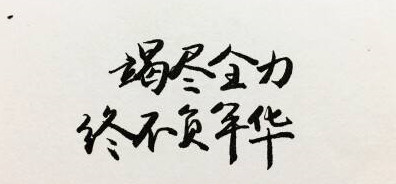 摘要:
限制性定语从句与非限制性定语从句有什么区别一、在句中作用不同限制性定语从句对被修饰的先行词有限定制约作用,使该词的含义更具体,更明确。限制性定语从句不能被省略,否则句意就不完整。非...
摘要:
限制性定语从句与非限制性定语从句有什么区别一、在句中作用不同限制性定语从句对被修饰的先行词有限定制约作用,使该词的含义更具体,更明确。限制性定语从句不能被省略,否则句意就不完整。非... 限制性定语从句与非限制性定语从句有什么区别
一、在句中作用不同
限制性定语从句对被修饰的先行词有限定制约作用,使该词的含义更具体,更明确。限制性定语从句不能被省略,否则句意就不完整。
非限制性定语从句与先行词关系不十分密切,只是对其作一些附加说明,不起限定制约作用。如果将非限制性定语从句省去,主句的意义仍然完整。
二、外在表现形式不同
限制性定语从句因与先行词关系密切,所以不可以用逗号将其与主句隔开;而非限制性定语从句与先行词关系不十分密切,所以可用逗号将其与主句隔开。
例 1. Do you remember the girl who taught us English?
你还记得教我们英语的那个女孩吗?
例 2. Clock is a kind of instrument which can tell people time.
钟是一种能够告诉人们时间的仪器。
例 3. This is the place where he used to live.
这就是他过去居住的地方。
例 4. Mr. Zhang, who came to see me yesterday, is an old friend of mine.
张先生昨天来看我,他是我的一位朋友。
例 5. We walked down the village street, where they were having market day.
我们沿着村里的大街向前走去,村民们正在那里赶集。
析:在前三个例句中,定语从句与先行词关系密切,为限制性定语从句,不可用逗号将其与主句隔开。在后两个例句中,定语从句与先行词关系不密切,为非限制性定语从句,可用逗号将其与主句隔开。
三、先行词内容有所不同
大多数限制性和非限制性定语从句的先行词往往为某一个词或短语,而特殊情况下非限制性定语从句的先行词也可为整个主句,此时非限制性定语从句常由 which 引导。
例 1. A middle-aged woman killed her husband, which frightened me very much.
一个中年女子杀害了自己的丈夫,这令我十分恐惧。
析:由语境可知,令“我”恐惧的内容应为“中年女子杀害了自己的丈夫”这整个一件事,因此先行词为整个主句,此时应由 which 引导定语从句。
例 2. A five-year-old boy can speak two foreign languages, which surprises all the people present.
一个五岁男孩会讲两门外语,这令所有在场的人感到非常惊讶。
析:由语境可知,令所有在场的人感到惊讶的内容是“一个五岁男孩会讲两门外语”这整个一件事,因此先行词为整个主句,此时应由 which 引导非限制性定语从句。
四、关系词的使用情况有所不同
(一) that 不可用于引导非限制性定语从句
所有关系代词和关系副词均可引导限制性定语从句,大多数关系代词和关系副词可引导非限制性定语从句,但 that 不可。
例 1. 他送给他母亲一台彩电作为生日礼物,这使她非常高兴。
误: He gave his mother a color TV set for her birthday, that pleased her a lot.
正: He gave his mother a color TV set for her birthday, which pleased her a lot.
例 2. 他没通过这次考试,令我很失望。
误: He didn't pass the exam, that disappointed me.
正: He didn't pass the exam, which disappointed me.
值得注意的是,不少同学误认为只有 which 才能引导非限制性定语从句,这个观点是不正确的。使用非限制性定语从句时,如果先行词指人,则用 who , which 或 whose 引导非限制性定语从句;先行词指物可用 which 引导非限制性定语从句;先行词表时间或地点且在从句中作时间状语或地点状语时,可用 when , where 引导非限制性定语从句。
例 1. We'll graduate in July, when we will be free.
我们将于七月份毕业,到那时我们就自由了。
例 2. Last Sunday they reached Nanjing, where a conference was to be held.
他们上周日到达南京,有个会议要在那里举行。
(二)关系代词替代情况不同
关系代词 whom 在限制性定语从句中作宾语时可用 who 代替 whom ,但 whom 在非限制性定语从句中作宾语时不可用 who 来代替。
例 1. This is the girl whom I met in the street.
这是我在街上遇到的那个女孩。
析:先行词 the girl 在限制性定语从句中作宾语,可用 who 代替 whom .
例 2. A young man had a new girl friend, whom he wanted to impress.
一个年轻的小伙子新交了一个女朋友,他想给她留下深刻的印象。
析:先行词 a new girl friend 在非限制性定语从句中作宾语,不可用 who 代替 whom .
在限制性定语从句中,先行词指人时可用 that 代替 who/ whom ,但在非限制性定语从句中先行词指人时,不可用 that 代替 who/whom .
例:她有一个姐姐,她是教师。
误: She has a sister, that is a teacher.
正: She has a sister, who is teacher.
(三)关系代词省略情况不同
关系代词在限制性定语从句中作宾语时可以省去,非限制性定语从句的所有关系词均不可省。
例 1. This is the book (which/that) he lost yesterday.
这就是他昨天丢的那本书。
析:先行词 the book 在限制性定语从句中作宾语,关系代词 which 或 that 可以省略。
例 2. The book, which he lost yesterday, has been found.
他昨天丢了这本书,但现在已找到了。
析:先行词 the book 在非限制性定语从句中作宾语,关系代词 which 不可省。
宝贝勤学好问,天天进步!
限制性定语从句和非限制性的区别
【限制性定语从句和非限制性定语从句有四大区别】
一、在句中作用不同
限制性定语从句对被修饰的先行词有限定制约作用,使该词的含义更具体,更明确。限制性定语从句不能被省略,否则句意就不完整。
非限制性定语从句与先行词关系不十分密切,只是对其作一些附加说明,不起限定制约作用。如果将非限制性定语从句省去,主句的意义仍然完整。
二、外在表现形式不同
限制性定语从句因与先行词关系密切,所以不可以用逗号将其与主句隔开;而非限制性定语从句与先行词关系不十分密切,所以可用逗号将其与主句隔开。
例 1. Do you remember the girl who taught us English?
你还记得教我们英语的那个女孩吗?
例 2. Clock is a kind of instrument which can tell people time.
钟是一种能够告诉人们时间的仪器。
例 3. This is the place where he used to live.
这就是他过去居住的地方。
例 4. Mr. Zhang, who came to see me yesterday, is an old friend of mine.
张先生昨天来看我,他是我的一位朋友。
例 5. We walked down the village street, where they were having market day.
我们沿着村里的大街向前走去,村民们正在那里赶集。
析:在前三个例句中,定语从句与先行词关系密切,为限制性定语从句,不可用逗号将其与主句隔开。在后两个例句中,定语从句与先行词关系不密切,为非限制性定语从句,可用逗号将其与主句隔开。
三、先行词内容有所不同
大多数限制性和非限制性定语从句的先行词往往为某一个词或短语,而特殊情况下非限制性定语从句的先行词也可为整个主句,此时非限制性定语从句常由 which 引导。
例 1. A middle-aged woman killed her husband, which frightened me very much.
一个中年女子杀害了自己的丈夫,这令我十分恐惧。
析:由语境可知,令“我”恐惧的内容应为“中年女子杀害了自己的丈夫”这整个一件事,因此先行词为整个主句,此时应由 which 引导定语从句。
例 2. A five-year-old boy can speak two foreign languages, which surprises all the people present.
一个五岁男孩会讲两门外语,这令所有在场的人感到非常惊讶。
析:由语境可知,令所有在场的人感到惊讶的内容是“一个五岁男孩会讲两门外语”这整个一件事,因此先行词为整个主句,此时应由 which 引导非限制性定语从句。
四、关系词的使用情况有所不同
(一) that 不可用于引导非限制性定语从句
所有关系代词和关系副词均可引导限制性定语从句,大多数关系代词和关系副词可引导非限制性定语从句,但 that 不可。
例 1. 他送给他母亲一台彩电作为生日礼物,这使她非常高兴。
误: He gave his mother a color TV set for her birthday, that pleased her a lot.
正: He gave his mother a color TV set for her birthday, which pleased her a lot.
例 2. 他没通过这次考试,令我很失望。
误: He didn't pass the exam, that disappointed me.
正: He didn't pass the exam, which disappointed me.
值得注意的是,不少同学误认为只有 which 才能引导非限制性定语从句,这个观点是不正确的。使用非限制性定语从句时,如果先行词指人,则用 who , which 或 whose 引导非限制性定语从句;先行词指物可用 which 引导非限制性定语从句;先行词表时间或地点且在从句中作时间状语或地点状语时,可用 when , where 引导非限制性定语从句。
例 1. We'll graduate in July, when we will be free.
我们将于七月份毕业,到那时我们就自由了。
例 2. Last Sunday they reached Nanjing, where a conference was to be held.
他们上周日到达南京,有个会议要在那里举行。
(二)关系代词替代情况不同
关系代词 whom 在限制性定语从句中作宾语时可用 who 代替 whom ,但 whom 在非限制性定语从句中作宾语时不可用 who 来代替。
例 1. This is the girl whom I met in the street.
这是我在街上遇到的那个女孩。
析:先行词 the girl 在限制性定语从句中作宾语,可用 who 代替 whom .
例 2. A young man had a new girl friend, whom he wanted to impress.
一个年轻的小伙子新交了一个女朋友,他想给她留下深刻的印象。
析:先行词 a new girl friend 在非限制性定语从句中作宾语,不可用 who 代替 whom .
在限制性定语从句中,先行词指人时可用 that 代替 who/ whom ,但在非限制性定语从句中先行词指人时,不可用 that 代替 who/whom .
例:她有一个姐姐,她是教师。
误: She has a sister, that is a teacher.
正: She has a sister, who is teacher.
(三)关系代词省略情况不同
关系代词在限制性定语从句中作宾语时可以省去,非限制性定语从句的所有关系词均不可省。
例 1. This is the book (which/that) he lost yesterday.
这就是他昨天丢的那本书。
析:先行词 the book 在限制性定语从句中作宾语,关系代词 which 或 that 可以省略。
例 2. The book, which he lost yesterday, has been found.
他昨天丢了这本书,但现在已找到了。
析:先行词 the book 在非限制性定语从句中作宾语,关系代词 which 不可省。
定语从句分为限制性定语从句和非限制性定语从句吗?
是的限定性定语从句
关系代词
关系代词:在句中作主语、宾语或定语
1. that既可代表事物也可代表人,which代表事物;它们在从句中作主语或宾语,that在从句中作宾语时常可省略关系词,which在从句中作宾语也可以省略。[eg:This is the book (which)you want.]
2. 如果which在从句中作“不及物动词+介词”的介词的宾语,注意介词不要丢掉,而且介词总是放在关系代词which的前边,但有的则放在它原来的位置
3. 代表物时多用which,但在下列情况中用that而不用which:
a)先行词是anything, everything, nothing , none等不定代词时;
b)先行词由every, any, all, some, no, little, few, much等修饰时,这时的that常被省略;
c)先行词前有序数词或形容词最高级修饰时;
d)先行词中既有人又有物时;
e)整个句中前面已有which时;
f)当先行词为物并作表语时。
4. who和whom引导的从句用来修饰人,分别作从句中的主语和宾语,whom作宾语时,要注意它可以作动词的宾语也可以作介词的宾语
5. whose是关系代词,修饰名词作定语,相当于所修饰成分的前置所有格.它引导的从句可以修饰人和物, 当它引导的从句修饰物体时, 可以与 of which 调换,表达的意思一样。
关系副词
关系副词:在句中作状语
关系副词=介词+关系代词
why=for which
where=in/ at/ on/ ... which (介词同先行词搭配)
when=during/ on/ in/ ... which (介词同先行词搭配)
1. where是关系副词,用来表示地点的定语从句。
2. when引导定语从句表示时间〔注〕值得一提的是,表示时间“time"一词的定语从句只用when引导,有时不用任何关系代词,当然也不用that引导。
By the time you arrived in London, we had stayed there for two weeks.
I still remember the first time I met her.
Each time he goes to business trip, he brings a lot of living necessities, such as towels, soap, toothbrush etc。
3. 当从句的逻辑主语是some, any, no, somebody, anybody, nobody, something, anything, everything或nothing时,常用there is来引导
There is somebody here who wants to speak to you. 这里有人要和你说话。
非限制性定语从句
非限制性定语从句的作用是对所修饰的成分作进一步说明,通常是引导词和先行词之间用逗号隔开,将从句拿掉后其他部分仍可成立
1. which引导的非限制性定语从句来说明前面整个句子的情况或主句的某一部分
2.当先行词是专有名词或物主代词和指示代词所修饰时,其后的定语从句通常是非限制性的,例如:
Charles Smith, who was my former teacher, retired last year. 查理·史密斯去年退休了,他曾经是我的老师。
My house, which I bought last year, has got a lovely garden. 我去年买的的那幢房子带着个漂亮的花园。
This novel, which I have read three times, is very touching. 这本小说很动人,我已经读了三遍。
3.非限制性定语从句还能将整个主句作为先行词, 对其进行修饰, 这时从句谓语动词要用第三人称单数,例如:
He seems not to have grasped what I meant, which greatly upsets me. 他似乎没抓住我的意思,这使我心烦。
Liquid water changes to vapor, which is called evaporation. 液态水变为蒸汽,这就叫做蒸发。
4. 有时as也可用作关系代词
5. 在非限定性定语从句中,不能用关系副词why和关系代词that,而用who, whom代表人,用which,whose代表事物,如果需要用why,
可用for which代替.;
p.s: which引导非限制性定语从句其后不可省略成分,as可以
限制性定语从句与非限制性的区别
在英文中,有两种定语从句:限定性定语从句与非限定性定语从句。这两种定语从句在其功能和形式方面都有明显的区别:
限定性定语从句限定性定语从句与主句的关系很紧奏,对其先行词起限定、修饰的作用。如果将其去掉,会影响句子意思的完整性;有时甚至于引起费解、误解。例如:
Rainforests are being cleared for valuable timber and other resources to speed up the economic growth of the nationsin which they are located .
为了加速他们各自所在国家的经济发展,热带雨林作为有价值的原木和其他资源正为人们所砍伐。
Ocean currents affect the climates of the lands near which they flow.
洋流影响其流经的附近地区的气候。
They explained the reason to us why they had hated us before.
他们向我们解释为什么他们不喜欢我们的原因。
非限定性定语从句非限定性定语从句在形式上就与主句很松散,它与主句之间有一个逗点","隔开;它对其先行词没有限定、修饰的作用,只起补充、说明的作用。有时也用它来对全句进行补充、说明。即使将其去掉,也不会影响句子意思。由于上述原因,非限定性定语从句在表达意思方面也有别于限定性定语从句。另外,非限定性定语从句在中文译文里,我们往往将其作为一个分句处理,而不把它作定语翻译。 例如:Earlier , the Babylonians had attempted to map the world , but they presented it in the form of a flattened disc rather than a sphere , which was the form adopted by Ptolemy .
什么是.限制性定语从句
定语从句(Attributive Clauses)在句中做定语,修饰一个名词或代词,被修饰的名词,词组或代词即先行词。定语从句通常出现在先行词之后,由关系词(关系代词或关系副词)引出。关系代词有:who, whom, whose, that, which等。
关系副词有:when, where, why等。
关系代词所代替的先行词是人或物的名词或代词,并在句中充当主语、宾语、定语等成分。关系代词在定语从句中作主语时,从句谓语动词的人称和数要和先行词保持一致。
1)who, whom, that
这些词代替的先行词是人的名词或代词,在从句中所起作用如下:
Is he the man who/that wants to see you?
他就是你想见的人吗?(who/that在从句中作主语)
He is the man whom/ that I saw yesterday.
他就是我昨天见的那个人。(whom/that在从句中作宾语)
2) Whose 用来指人或物,(只用作定语, 若指物,它还可以同of which互换), 例如:
They rushed over to help the man whose car had broken down. 那人车坏了,大家都跑过去帮忙。
Please pass me the book whose (of which) cover is green. 请递给我那本绿皮的书。
3)which, that
它们所代替的先行词是事物的名词或代词,在从句中可作主语、宾语等,例如:
A prosperity which / that had never been seen before appears in the countryside. 农村出现了前所未有的繁荣。(which / that在句中作主语)
The package (which / that) you are carrying is about to come unwrapped. 你拿的包快散了。(which / that在句中作宾语)
关系副词可代替的先行词是时间、地点或理由的名词,在从句中作状语。
1)when, where, why
关系副词when, where, why的含义相当于"介词+ which"结构,因此常常和"介词+ which"结构交替使用,例如:
There are occasions when (on which) one must yield. 任何人都有不得不屈服的时候。
Beijing is the place where (in which) I was born. 北京是我的出生地。
Is this the reason why (for which) he refused our offer? 这就是他拒绝我们帮助他的理由吗?
2)that代替关系副词
that可以用于表示时间、地点、方式、理由的名词后取代when, where, why和"介词+ which"引导的定语从句,在口语中that常被省略,例如:
His father died the year (that / when / in which) he was born. 他父亲在他出生那年逝世了。
He is unlikely to find the place (that / where / in which) he lived forty years ago. 他不大可能找到他四十年前居住过的地方。
·判断关系代词与关系副词
方法一: 用关系代词,还是关系副词完全取决于从句中的谓语动词。及物动词后面无宾语,就必须要求用关系代词;而不及物动词则要求用关系副词。例如:
This is the mountain village where I stayed last year.
I'll never forget the days when I worked together with you.
判断改错(注:先显示题,再显示答案,横线;用不同的颜色表示出。)
(错) This is the mountain village where I visited last year.
(错) I will never forget the days when I spent in the countryside.
(对) This is the mountain village (which) I visited last year.
(对) I'll never forget the days (which) I spent in the countryside.
习惯上总把表地点或时间的名词与关系副词 where, when联系在一起。此两题错在关系词的误用上。
方法二: 准确判断先行词在定语从句中的成分(主、谓、宾、定、状),也能正确选择出关系代词/关系副词。
例1. Is this museum ___ you visited a few days age?
A. where B. that C. on which D. the one
例2. Is this the museum ____ the exhibition was held.
A. where B. that C. on which D. the one
答案:例1 D,例2 A
例1变为肯定句: This museum is ___ you visited a few days ago.
例2变为肯定句: This is the museum ___ the exhibition was held.
在句1中,所缺部分为宾语,而where, that, on which都不能起到宾语的作用,只有the one既做了主句的表语,又可做从句的宾语,可以省略关系代词,所以应选D。
而句2中, 主、谓、宾俱全,从句部分为句子的状语表地点,既可用副词where,又因 in the museum词组,可用介词in + which 引导地点状语。而此题中,介词on 用的不对,所以选A。
关系词的选择依据在从句中所做的成分,先行词在从句中做主、定、宾语时,选择关系代词 (who, whom, that, which, whose); 先行词在从句中做状语时,应选择关系副词 ( where 地点状语,when 时间状语,why 原因状语) 。
1) 定语从句有限制性和非限制性两种。限制性定语从句是先行词不可缺少的部分,去掉它主句意思往往不明确;非限制性定语从句是先行词的附加说明,去掉了也不会影响主句的意思,它与主句之间通常用逗号分开,例如:
This is the house which we bought last month. 这是我们上个月买的那幢房子。(限制性)
The house, which we bought last month, is very nice.这幢房子很漂亮,是我们上个月买的。(非限制性)
2) 当先行词是专有名词或物主代词和指示代词所修饰时,其后的定语从句通常是非限制性的,例如:
Charles Smith, who was my former teacher, retired last year. 查理·史密斯去年退休了,他曾经是我的老师。
My house, which I bought last year, has got a lovely garden. 我去年买的的那幢房子带着个漂亮的花园。
This novel, which I have read three times, is very touching. 这本小说很动人,我已经读了三遍。
3) 非限制性定语从句还能将整个主句作为先行词, 对其进行修饰, 这时从句谓语动词要用第三人称单数,例如:
He seems not to have grasped what I meant, which greatly upsets me. 他似乎没抓住我的意思,这使我心烦。
Liquid water changes to vapor, which is called evaporation. 液态水变为蒸汽,这就叫做蒸发。
说明:关系代词that和关系副词why不能引导非限制性定语从句。
1)介词后面的关系词不能省略。
2)that前不能有介词。
3) 某些在从句中充当时间,地点或原因状语的"介词+关系词"结构可以同关系副词when 和where 互换。
This is the house in which I lived two years ago.
This is the house where I lived two years ago.
Do you remember the day on which you joined our club?
Do you remember the day when you joined our club?
由as, which 引导的非限定性定语从句,as和which可代整个主句,相当于and this或and that。As一般放在句首,which在句中。
As we know, smoking is harmful to one's health.
The sun heats the earth, which is very important to us.
典型例题
1)Alice received an invitation from her boss, ___came as a surprise.
A. it B. that C. which D. he
答案C. 此为非限定性从句,不能用 that修饰,而用which.,it 和he 都使后句成为句子,两个独立的句子不能单以逗号连接。况且选he句意不通。
2)The weather turned out to be very good, ___ was more than we could expect.
A. what B. which C. that D. it
答案B。which可代替句子,用于非限定性定语从句,而what不可。That 不能用于非限定性定语从句,it不为连词,使由逗号连接的两个句子并在一起在英语语法上行不通。
3)It rained hard yesterday, ____ prevented me from going to the park..
A. that B. which C. as D. it
答案B.
as 和which在引导非限制性定语从句时,这两个关系代词都指主句所表达的整个意思,且在定语从句中都可以作主语和宾语。但不同之处主要有两点:
(1) as 引导的定语从句可置于句首,而which不可。
(2) as 代表前面的整个主句并在从句中作主语时,从句中的谓语必须是系动词;若为行为动词,则从句中的关系代词只能用which.。
在本题中,prevent由于是行为动词,所以正确选项应为B。
As 的用法
例1. the same… as;such…as 中的as 是一种固定结构, 和……一样……。
I have got into the same trouble as he (has).
例2. as可引导非限制性从句,常带有'正如'。
As we know, smoking is harmful to one's health.
As is know, smoking is harmful to one's health.
As是关系代词。例1中的as作know的宾语;例2中,它充当从句的主语,谓语动词know要用被动式。
1)Whoever spits in public will be punished here.
(Whoever 可以用 anyone who 代替)
2)The parents will use what they have to send their son to technical school.
(what 可以用all that代替)
1)what = the thing which;whatever = anything
What you want has been sent here.
Whatever you want makes no difference to me.
2) who= the person that whoever= anyone who
(错)Who breaks the law will be punished.
(错)Whoever robbed the bank is not clear.
(对)Whoever breaks the law will be punished.
(对)Who robbed the bank is not clear.
3) that 和 what
当that引导定语从句时 ,通常用作关系代词,而引导名词性从句时,是个不充当任何成分的连接词。宾语从句和表语从句中的that常可省略。What只能引导名词性从 句, 用作连接代词,作从句的具体成分,且不能省略。
I think (that) you will like the stamps.
What we need is more practice.
1)不用that的情况
a) 在引导非限定性定语从句时。
(错) The tree, that is four hundred years old, is very famous here.
b) 介词后不能用。
We depend on the land from which we get our food.
We depend on the land that/which we get our food from.
2) 只能用that作为定语从句的关系代词的情况
a) 在there be 句型中,只用that,不用which。
b) 在不定代词,如:anything, nothing, the one, all, much, few, any, little等作先行词时,只用that,不用which。
c) 先行词有the only, the very修饰时,只用that。
d) 先行词为序数词、数词、形容词最高级时,只用that。.
e) 先行词既有人,又有物时。
举例:
All that is needed is a supply of oil.
所需的只是供油问题。
Finally, the thief handed everything that he had stolen to the police.
那贼最终把偷的全部东西交给了警察。

